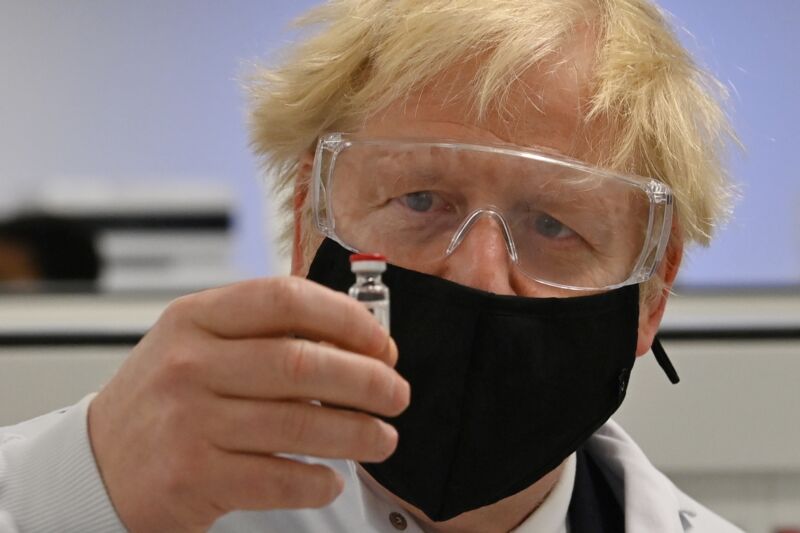
Regulators and health officials in the United Kingdom are waving the Union Jack today, celebrating being the first country to approve the COVID-19 vaccine developed by US-based pharmaceutical giant Pfizer and German biotech firm BioNTech.
The frontrunner vaccine is under review in regulatory agencies around the world, including the US Food and Drug Administration and the European Union’s European Medicines Agency. But the UK was the first to give the vaccine the green-light after a remarkably short 10-day review. In non-pandemic times, such reviews typically take months.
“The UK was the first country to sign a deal with Pfizer/BioNTech—now we will be the first to deploy their vaccine,” UK Business Secretary Alok Sharma wrote in a tweet. “In years to come, we will remember this moment as the day the UK led humanity’s charge against this disease.”
UK Secretary of State for Health and Social Care Matt Hancock likewise celebrated UK’s step, saying in a statement to the House of Commons: “I can confirm that the UK is the first country in the world to have a clinically approved coronavirus vaccine for supply. And now, our task is to make use of the fruits of this scientific endeavor, to save lives.”
Outside Britain, the swift regulatory review and celebration drew direct and indirect criticism.
“The idea is not to be first but to have a safe and effective vaccine,” Germany’s Health Minister Jens Spahn said bluntly in a news conference.
Spahn added that it’s not as if other countries were unable to issue such a hasty approval—it’s that they specifically chose to not do so.
“We have member states, including Germany, who could have issued such emergency authorization if they wanted to, but we decided against this,” Spahn said. He emphasized that, instead, EU members would move forward together to conduct a rapid, but still careful and thorough, review of the data. “It’s important that we do this to help promote trust and confidence in this authorization.”
Problematic
Others in the EU were more even more direct in their criticism of the UK’s approval.
“I consider this decision to be problematic and recommend that EU Member States do not repeat the process in the same way,” EU Parliament Member Peter Liese said, according to Reuters. “A few weeks of thorough examination by the European Medicines Agency is better than a hasty emergency marketing authorization of a vaccine,” Liese added.
The EMA itself released a forthright statement saying that its more thorough, longer review process is the “most appropriate regulatory mechanism for use in the current pandemic emergency.” The agency noted that it would come to a decision on the Pfizer/BioNTech vaccine by December 29.
The FDA, meanwhile, is expected to make a decision about the vaccine on or shortly after December 10, when an advisory committee will convene to review Pfizer and BioNTech’s request for an Emergency Use Authorization. The slower timeline than that of the UK has already put pressure on the agency. The FDA has made a concerted effort to assure the public that whatever vaccines it approves are indeed safe and effective. The Trump administration, however, is demanding speed.
“Vaccine Summit”
According to reporting by Politico, HHS Secretary Alex Azar and White House Chief of Staff Mark Meadows reportedly met with FDA Commissioner Stephen Hahn and other FDA officials this week to question the need for the agency’s rigorous vaccine review process. Four officials told the outlet that the push to quickly approve a vaccine was born partly out of Trump’s desire to take credit for the health triumph.
In line with that reporting, STAT news reports that the Trump administration has planned a “COVID-19 Vaccine Summit” next week, to be attended by leading vaccine manufacturers. The outlet noted that pharmaceutical officials familiar with the event interpreted it as an opportunity for the White House to pressure the FDA to quickly issue emergency authorizations—as well as to ensure Trump receives credit for speedy vaccine development.
https://arstechnica.com/?p=1727105

